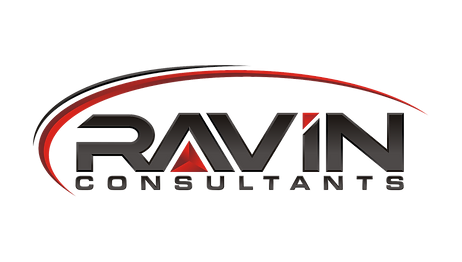In the ever-evolving landscape of healthcare, the 340B Drug Pricing Program stands out as a crucial element for enabling healthcare providers to stretch scarce federal resources as far as possible, reaching more eligible patients and providing more comprehensive services to maximize 340B savings. Enacted in 1992, the 340B program allows eligible healthcare organizations, referred to as ‘covered entities,’ to obtain outpatient drugs at significantly reduced prices.
However, navigating the complexities of the 340B program can be daunting. To truly maximize the savings and benefits the program offers, it’s essential to implement strategic practices that ensure compliance, optimize drug purchasing, and enhance patient services. As a 340B consulting agency, Ravin Consultants delves into practical strategies that healthcare providers can employ to leverage the 340B program effectively, maintain program integrity, and ultimately, support their mission to deliver quality care to underserved populations.
Understanding Eligibility and Enrollment: Ensuring Your Entity Qualifies
The foundation of a successful 340B program begins with understanding and meeting the criteria of 340B eligibility. The program is open to a range of healthcare organizations, including hospitals, health centers, and specialized clinics, that serve a predominantly low-income or rural patient population. To enroll in the 340B program, an entity must be federally recognized as a covered entity and appear on the Office of Pharmacy Affairs (OPA) database.
Maintaining eligibility requires meticulous adherence to program requirements. This includes accurate record-keeping, regular audits, and timely reporting. It’s also crucial to stay informed about policy changes that could affect your entity’s status. For instance, shifts in patient demographics or changes in federal poverty guidelines could impact eligibility.
Ensuring that your entity is both qualified and compliant is a continuous process. Many covered entities turn to specialized 340B consultants to navigate the complexities of enrollment and compliance. These experts can provide valuable guidance on the ever-changing landscape of 340B requirements, helping to safeguard your program’s integrity and benefits.
Working with 340B Consultants to Optimize Program Participation
One of the most effective strategies for maximizing the benefits of the 340B program is engaging a 340B consultant. These specialists bring an in-depth understanding of the program’s intricacies and can provide tailored advice to optimize your participation. Here’s how a 340B consultant can add value:
Comprehensive Compliance Reviews: Consultants can conduct thorough reviews to ensure your organization adheres to all regulatory requirements, minimizing the risk of non-compliance.
Strategic Planning: They can assist in developing strategic plans that align with your organization’s goals, helping you to make the most of the savings and reinvest them into patient care.
Policy Development: Consultants can help craft clear policies and procedures that outline the proper use of 340B savings, ensuring consistency and transparency within your organization.
Audit Preparation and Support: In the event of HRSA or manufacturer audits, consultants provide invaluable support, helping you to navigate the audit process with confidence.
Education and Training: Keeping staff informed and well-trained on 340B processes is essential. Consultants can provide comprehensive training to ensure that your team is equipped to manage the program effectively.
The expertise of a 340B consultant can be particularly beneficial when it comes to complex aspects of the program, such as contract pharmacy arrangements, addressing manufacturer restrictions, and optimizing the use of third-party administrators (TPAs). By leveraging their knowledge, you can enhance program performance, which can translate into better services for your patients and improved financial outcomes for your organization.
Navigating Manufacturer Restrictions and Compliance Requirements
Manufacturer restrictions and compliance requirements present a significant challenge in the 340B program. However, with careful planning and vigilant oversight, covered entities can navigate these challenges effectively. Here’s what you need to know:
Stay Informed About Manufacturer Developments: Keeping abreast of the latest manufacturer guidelines and restrictions is crucial. This information can impact how you purchase and use 340B drugs.
- Develop a Robust Compliance Program: A strong compliance program that includes policies and procedures for dealing with manufacturer restrictions is vital. This program should be reviewed and updated regularly to reflect the current landscape.
- Engage with Manufacturers Proactively: Open dialogue with pharmaceutical manufacturers can help resolve issues before they escalate. It’s beneficial to engage in discussions regarding 340B pricing and supply concerns.
Leverage Support from Industry Associations: Industry associations and coalitions can be valuable resources for staying current on legal developments and advocacy efforts related to manufacturer restrictions.
Document Everything: Meticulous documentation is critical for demonstrating compliance, particularly when dealing with manufacturer audits or disputes. Accurate records can also provide valuable insights into the effects of manufacturer restrictions on your operations. - Navigating the complexities of manufacturer restrictions requires diligence and a proactive approach. By staying informed and prepared, covered entities can maintain compliance and continue to realize the benefits of the 340B program.
If you are looking to better optimize the 340B program in your facility, please schedule a consulation with Ravin Consultants to learn how we can help.

